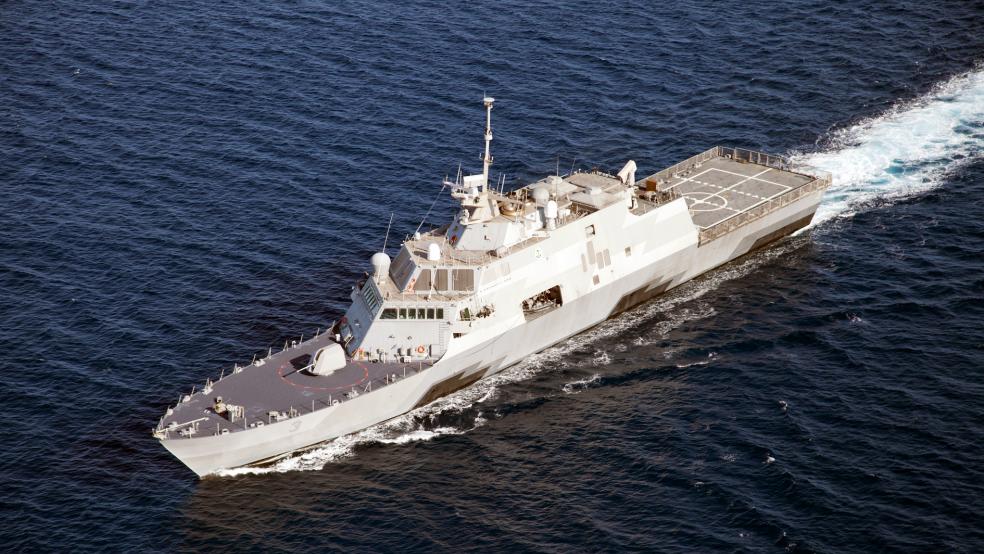The littoral combat ship, one of the most advanced and expensive vessels in the U.S. Navy’s fleet could soon undergo a radical sea change if Defense Secretary Ash Carter gets his way.
In a December 14 letter to Navy Secretary Ray Mabus, the Pentagon chief said the service should scale back its planned buy of 52 LCS ships to 40 and limit the design to one vessel variant rather than the two that exist today. The letter was first reported on by Defense News.
Related: The Navy’s New $362 Million Ship Needs a Tow to Get Home
Carter directs the Navy to funnel the savings toward an assortment ship upgrades, munitions buys and aircraft purchases, including 31 additional F-35 Joint Strike Fighters.
The directive is just one part of the Pentagon’s budgetary game of chess, as it gets ready to unveil its fiscal 2017 spending request. Defense officials project they will have a $17 billion budget shortfall that year.
Taking money out of the LSC effort, which costs around $362 million apiece (and that’s before another $100 million is spent arming each vessel) would allow the Navy to spread out roughly $4.3 billion over the next years to other priorities and get more bang for its bucks.
But Carter’s decision could also spell larger problems for the LCS program, which has been plagued with cost overruns, design flaws and survivability issues. His letter was sent just days after the USS Milwaukee, the Navy’s newest ship, broke down and had to be towed home.
Related: Congress Showers the F-35 Program with Cash
There are two different LCS models in production today. There’s the Freedom class, produced by Lockheed Martin in Wisconsin, and the Independence class, which is built by Austal USA out of Alabama. At least 14 of the vessels are under construction, six are under contract and six have been commissioned.
The Pentagon’s decision to reduce the LCS program already has members of Congress who have skin in the game crying foul.
“Our Navy is at risk across the world and the weak and impotent Obama Administration seeks to further undermine our position with this ill-considered decision,” Rep. Bradley Byrne (R-AL), a member of the House Armed Services Committee, said in a statement. “Make no mistake about it, from Mobile to Marinette, from San Diego and Jacksonville, the bell has rung, and those in the Pentagon need to hear that this will not stand.”
Meanwhile, Rep. Jackie Speier (D-CA), a major opponent of the LCS program, welcomed the news.
Related: Why the Air Force Is Offering Drone Pilots Six-Figure Bonuses
“The LCS program has long been hobbled by hazy conceptual justifications and serious acquisition malpractice,” according to Speier, who also sits on the Armed Services panel. “We must be good stewards of taxpayer money and direct it to programs that will be the most effective at keeping our service members safe and defending the American people.”
Surprisingly, Senate Armed Services Committee chair John McCain (R-AZ), who has lambasted the LCS effort in the past, is keeping quiet for the time being.
In a statement, he said the panel hadn’t been briefed on any decision, but “my concerns with the LCS, from cost overruns to schedule delays to poor performance, are well known. I hope these reports are an indication that the Pentagon is thinking strategically about the size and composition of the future force, including the LCS program. I look forward to taking a close look at the administration’s budget request.”





